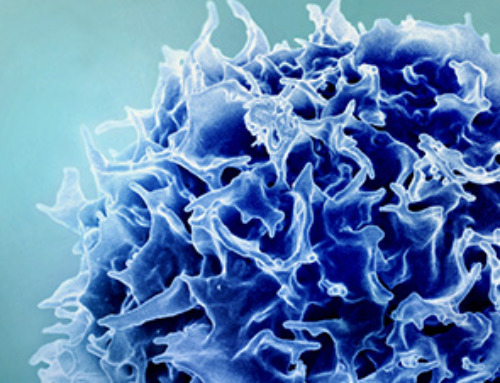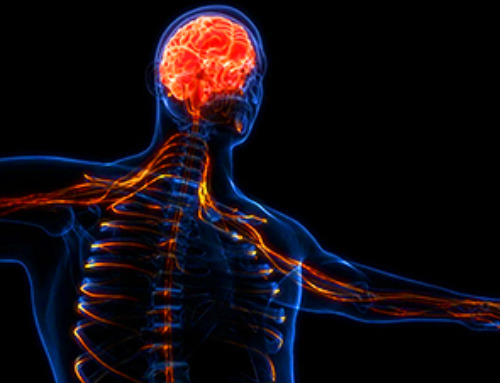COVID Moonshot's groundbreaking research introduces new nonpeptidic inhibitors for SARS-CoV-2, showcasing global collaboration and open science in advancing coronavirus therapeutics.
Although the group's work has been freely available since its inception in March 2020, the COVID Moonshot Consortium is finally formally reporting its results. The COVID Moonshot – an open-science, crowdsourced, and patent-free drug discovery campaign targeting the SARS-CoV-2 virus – has yielded a wealth of data on the virus's main protease, including insights that could pave the way for the development of new and better therapeutics.
"The lead therapeutics described by [these researchers] may not be ready in time to affect the current pandemic, considering the timelines and challenges of drug approval," write Brian Shoichet and Charles Craik in a related Perspective. "Nevertheless, the compounds and the techniques used to identify them may well affect human health in the future."
Global Collaboration and Drug Discovery Efforts
The novel collaboration included more than 200 volunteer scientists from 47 academic and industrial organizations spanning 25 countries. "The COVID Moonshot provides an example of open science drug discovery leading to advances in infectious diseases drug discovery – a research area of grave public importance, but one that is chronically underfunded by the private sector," write Melissa and colleagues.
Due to its essential role in viral replication, the SARS-CoVB-2 main protease (Mpro) is an attractive target for antiviral development. Current SARS-CoV-2 Mpro inhibitor drugs, such as those drawn from preexisting antiviral pipelines like Paxlovid and Xocova, have shown clinical success. However, the use of these compounds has remained relatively limited and their peptidomimetic and covalent scaffolds create issues for synthesis and administration.
Innovative Drug Design and Open Science Impact
Here, Boby et al. describe the discovery of a novel, noncovalent, and nonpeptidic inhibitor scaffold that is chemically distinct from current Mpro inhibitors. Leveraging a crowdsourcing approach and the combined expertise of hundreds of individuals worldwide, Boby et al. describe their open-science drug discovery campaign, which included machine learning, molecular simulations, and high-throughput structural biology and chemistry to assemble a detailed structural map of the SARS-CoV-2 main protease and its biochemical activity.
Of the more than 18,000 compound designs produced by the COVID Moonshot Consortium, the authors identified several noncovalent, nonpeptidomimetic inhibitors, including a lead compound with promising bioavailability, safety, and antiviral activity.
All compound designs from the project have been shared openly, creating a rich, open, and intellectual property–free knowledge base for future anticoronavirus drug discovery.
Reference: "Open science discovery of potent noncovalent SARS-CoV-2 main protease inhibitors" by Melissa L. Boby, Daren Fearon, Matteo Ferla, Mihajlo Filep, Lizbé Koekemoer, Matthew C. Robinson, The COVID Moonshot Consortium‡, John D. Chodera, Alpha A. Lee, Nir London, Annette von Delft, Frank von Delft, Hagit Achdout, Anthony Aimon, Dominic S. Alonzi, Robert Arbon, Jasmin C. Aschenbrenner, Blake H. Balcomb, Elad Bar-David, Haim Barr, Amir Ben-Shmuel, James Bennett, Vitaliy A. Bilenko, Bruce Borden, Pascale Boulet, Gregory R. Bowman, Lennart Brewitz, Juliane Brun, Sarma BVNBS, Mark Calmiano, Anna Carbery, Daniel W. Carney, Emma Cattermole, Edcon Chang, Eugene Chernyshenko, Austin Clyde, Joseph E. Coffland, Galit Cohen, Jason C. Cole, Alessandro Contini, Lisa Cox, Tristan Ian Croll, Milan Cvitkovic, Steven De Jonghe, Alex Dias, Kim Donckers, David L. Dotson, Alice Douangamath, Shirly Duberstein, Tim Dudgeon, Louise E. Dunnett, Peter Eastman, Noam Erez, Charles J. Eyermann, Michael Fairhead, Gwen Fate, Oleg Fedorov, Rafaela S. Fernandes, Lori Ferrins, Richard Foster, Holly Foster, Laurent Fraisse, Ronen Gabizon, Adolfo García-Sastre, Victor O. Gawriljuk, Paul Gehrtz, Carina Gileadi, Charline Giroud, William G. Glass, Robert C. Glen, Itai Glinert, Andre S. Godoy, Marian Gorichko, Tyler Gorrie-Stone, Ed J. Griffen, Amna Haneef, Storm Hassell Hart, Jag Heer, Michael Henry, Michelle Hill, Sam Horrell, Qiu Yu Judy Huang, Victor D. Huliak, Matthew F. D. Hurley, Tomer Israely, Andrew Jajack, Jitske Jansen, Eric Jnoff, Dirk Jochmans, Tobias John, Benjamin Kaminow, Lulu Kang, Anastassia L. Kantsadi, Peter W. Kenny, J. L. Kiappes, Serhii O. Kinakh, Boris Kovar, Tobias Krojer, Van Ngoc Thuy La, Sophie Laghnimi-Hahn, Bruce A. Lefker, Haim Levy, Ryan M. Lithgo, Ivan G. Logvinenko, Petra Lukacik, Hannah Bruce Macdonald, Elizabeth M. MacLean, Laetitia L. Makower, Tika R. Malla, Peter G. Marples, Tatiana Matviiuk, Willam McCorkindale, Briana L. McGovern, Sharon Melamed, Kostiantyn P. Melnykov, Oleg Michurin, Pascal Miesen, Halina Mikolajek, Bruce F. Milne, David Minh, Aaron Morris, Garrett M. Morris, Melody Jane Morwitzer, Demetri Moustakas, Charles E. Mowbray, Aline M. Nakamura, Jose Brandao Neto, Johan Neyts, Luong Nguyen, Gabriela D. Noske, Vladas Oleinikovas, Glaucius Oliva, Gijs J. Overheul, C. David Owen, Ruby Pai, Jin Pan, Nir Paran, Alexander Matthew Payne, Benjamin Perry, Maneesh Pingle, Jakir Pinjari, Boaz Politi, Ailsa Powell, Vladimír Pšenák, Iván Pulido, Reut Puni, Victor L. Rangel, Rambabu N. Reddi, Paul Rees, St Patrick Reid, Lauren Reid, Efrat Resnick, Emily Grace Ripka, Ralph P. Robinson, Jaime Rodriguez-Guerra, Romel Rosales, Dominic A. Rufa, Kadi Saar, Kumar Singh Saikatendu, Eidarus Salah, David Schaller, Jenke Scheen, Celia A. Schiffer, Christopher J. Schofield, Mikhail Shafeev, Aarif Shaikh, Ala M. Shaqra, Jiye Shi, Khriesto Shurrush, Sukrit Singh, Assa Sittner, Peter Sjö, Rachael Skyner, Adam Smalley, Bart Smeets, Mihaela D. Smilova, Leonardo J. Solmesky, John Spencer, Claire Strain-Damerell, Vishwanath Swamy, Hadas Tamir, Jenny C. Taylor, Rachael E. Tennant, Warren Thompson, Andrew Thompson, Susana Tomásio, Charles W. E. Tomlinson, Igor S. Tsurupa, Anthony Tumber, Ioannis Vakonakis, Ronald P. van Rij, Laura Vangeel, Finny S. Varghese, Mariana Vaschetto, Einat B. Vitner, Vincent Voelz, Andrea Volkamer, Martin A. Walsh, Walter Ward, Charlie Weatherall, Shay Weiss, Kris M. White, Conor Francis Wild, Karolina D. Witt, Matthew Wittmann, Nathan Wright, Yfat Yahalom-Ronen, Nese Kurt Yilmaz, Daniel Zaidmann, Ivy Zhang, Hadeer Zidane, Nicole Zitzmann and Sarah N. Zvornicanin, 10 November 2023, Science.
DOI: 10.1126/science.abo7201
News
This Viral RNA Structure Could Lead to a Universal Antiviral Drug
Researchers identify a shared RNA-protein interaction that could lead to broad-spectrum antiviral treatments for enteroviruses. A new study from the University of Maryland, Baltimore County (UMBC), published in Nature Communications, explains how enteroviruses begin reproducing [...]
New study suggests a way to rejuvenate the immune system
Stimulating the liver to produce some of the signals of the thymus can reverse age-related declines in T-cell populations and enhance response to vaccination. As people age, their immune system function declines. T cell [...]
Nerve Damage Can Disrupt Immunity Across the Entire Body
A single nerve injury can quietly reshape the immune system across the entire body. Preclinical research from McGill University suggests that nerve injuries may lead to long-lasting changes in the immune system, and these [...]
Fake Science Is Growing Faster Than Legitimate Research, New Study Warns
New research reveals organized networks linking paper mills, intermediaries, and compromised academic journals Organized scientific fraud is becoming increasingly common, ranging from fabricated research to the buying and selling of authorship and citations, according [...]
Scientists Unlock a New Way to Hear the Brain’s Hidden Language
Scientists can finally hear the brain’s quietest messages—unlocking the hidden code behind how neurons think, decide, and remember. Scientists have created a new protein that can capture the incoming chemical signals received by brain [...]
Does being infected or vaccinated first influence COVID-19 immunity?
A new study analyzing the immune response to COVID-19 in a Catalan cohort of health workers sheds light on an important question: does it matter whether a person was first infected or first vaccinated? [...]
We May Never Know if AI Is Conscious, Says Cambridge Philosopher
As claims about conscious AI grow louder, a Cambridge philosopher argues that we lack the evidence to know whether machines can truly be conscious, let alone morally significant. A philosopher at the University of [...]
AI Helped Scientists Stop a Virus With One Tiny Change
Using AI, researchers identified one tiny molecular interaction that viruses need to infect cells. Disrupting it stopped the virus before infection could begin. Washington State University scientists have uncovered a method to interfere with a key [...]
Deadly Hospital Fungus May Finally Have a Weakness
A deadly, drug-resistant hospital fungus may finally have a weakness—and scientists think they’ve found it. Researchers have identified a genetic process that could open the door to new treatments for a dangerous fungal infection [...]
Fever-Proof Bird Flu Variant Could Fuel the Next Pandemic
Bird flu viruses present a significant risk to humans because they can continue replicating at temperatures higher than a typical fever. Fever is one of the body’s main tools for slowing or stopping viral [...]
What could the future of nanoscience look like?
Society has a lot to thank for nanoscience. From improved health monitoring to reducing the size of electronics, scientists’ ability to delve deeper and better understand chemistry at the nanoscale has opened up numerous [...]
Scientists Melt Cancer’s Hidden “Power Hubs” and Stop Tumor Growth
Researchers discovered that in a rare kidney cancer, RNA builds droplet-like hubs that act as growth control centers inside tumor cells. By engineering a molecular switch to dissolve these hubs, they were able to halt cancer [...]
Platelet-inspired nanoparticles could improve treatment of inflammatory diseases
Scientists have developed platelet-inspired nanoparticles that deliver anti-inflammatory drugs directly to brain-computer interface implants, doubling their effectiveness. Scientists have found a way to improve the performance of brain-computer interface (BCI) electrodes by delivering anti-inflammatory drugs directly [...]
After 150 years, a new chapter in cancer therapy is finally beginning
For decades, researchers have been looking for ways to destroy cancer cells in a targeted manner without further weakening the body. But for many patients whose immune system is severely impaired by chemotherapy or radiation, [...]
Older chemical libraries show promise for fighting resistant strains of COVID-19 virus
SARS‑CoV‑2, the virus that causes COVID-19, continues to mutate, with some newer strains becoming less responsive to current antiviral treatments like Paxlovid. Now, University of California San Diego scientists and an international team of [...]
Lower doses of immunotherapy for skin cancer give better results, study suggests
According to a new study, lower doses of approved immunotherapy for malignant melanoma can give better results against tumors, while reducing side effects. This is reported by researchers at Karolinska Institutet in the Journal of the National [...]





















